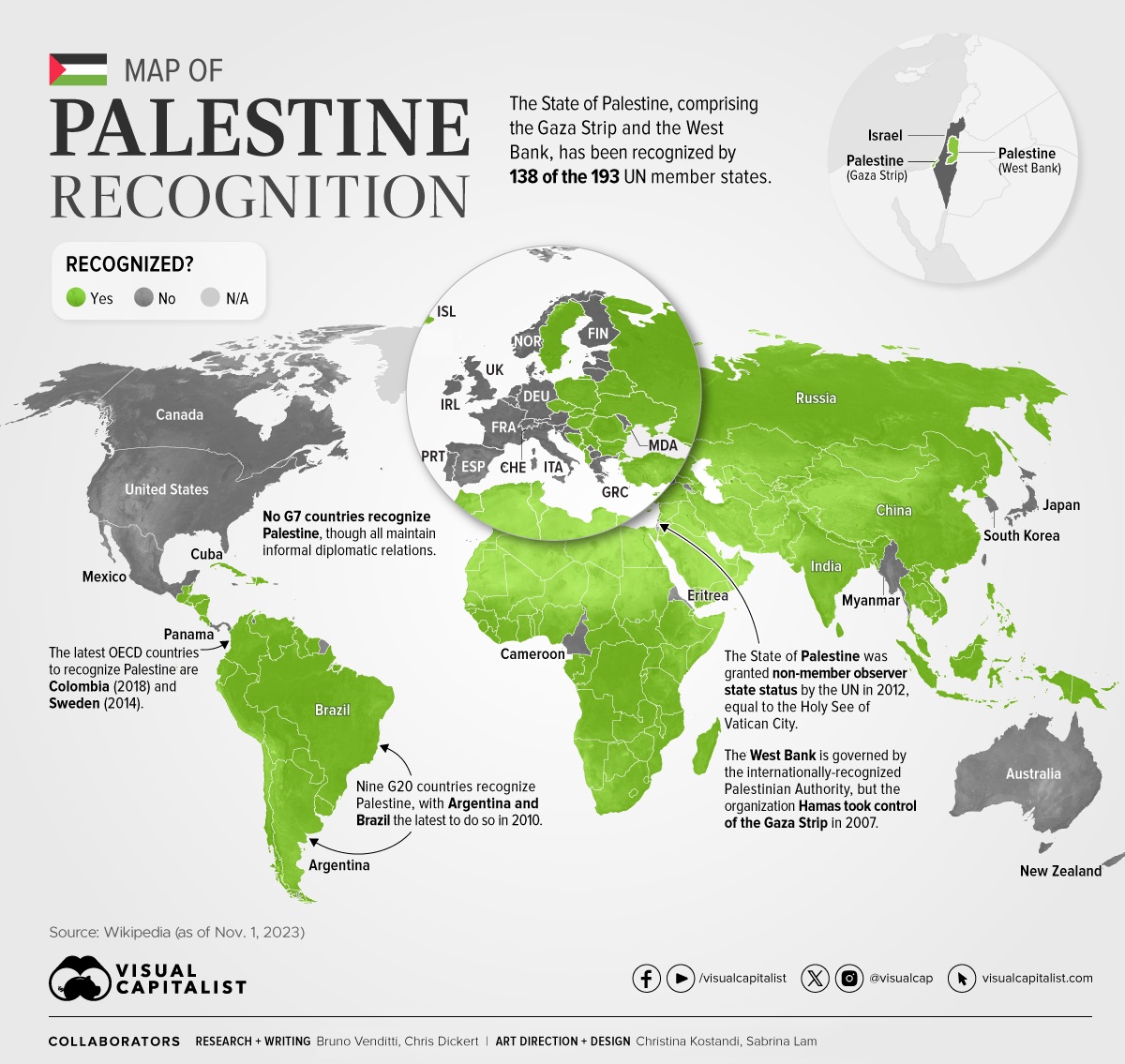Indonesia Open To Israel Relations: Palestine Recognition As A Precondition

Table of Contents
Indonesia's Stance on Palestine: A Cornerstone of Foreign Policy
Indonesia's unwavering support for Palestine is not a recent development; it's a deeply ingrained principle woven into the fabric of its foreign policy. The Indonesian government consistently condemns the Israeli occupation of Palestinian territories, viewing it as a violation of international law and a grave injustice. This commitment is deeply rooted in the Indonesian people's strong emotional connection to the Palestinian struggle, fueled by shared experiences of colonialism and a yearning for self-determination. Indonesia's active role in advocating for Palestinian rights on the international stage is further evidence of this commitment.
- Membership in the Organization of Islamic Cooperation (OIC): Indonesia plays a significant role within the OIC, consistently championing the Palestinian cause and pushing for resolutions that support Palestinian statehood.
- United Nations Voting Patterns: Indonesia's voting record at the UN consistently reflects its pro-Palestine stance, supporting resolutions that condemn Israeli actions and advocate for a two-state solution.
- Financial and Humanitarian Aid: Indonesia provides substantial financial and humanitarian aid to Palestine, demonstrating its concrete commitment to alleviating the suffering of the Palestinian people.
This steadfast commitment to the Palestinian cause is not simply a matter of political expediency; it represents a core value deeply held by the Indonesian government and its people.
The Potential Benefits of Indonesia-Israel Cooperation
Despite the complexities, there are undeniable potential benefits to be gained from increased cooperation between Indonesia and Israel. Israel's technological prowess, particularly in agriculture and water management, could significantly benefit Indonesia, a nation with a large and growing population facing challenges in these areas. Similarly, Israel's experience in tourism could offer valuable insights for Indonesia's burgeoning tourism sector.
- Increased Investment Opportunities: Stronger ties could attract significant Israeli investment in various Indonesian sectors, stimulating economic growth and job creation.
- Technological Transfer and Knowledge Sharing: Collaboration in areas like water technology, precision agriculture, and medical technology could lead to significant advancements in Indonesia.
- Improved Agricultural Practices and Food Security: Israel's expertise in arid-land agriculture could help Indonesia improve its agricultural productivity and enhance food security.
- Enhanced Tourism Revenue: Joint ventures in tourism could attract more international tourists to both countries, boosting revenue and creating employment opportunities.
Beyond the economic advantages, closer relations could also foster regional stability and enhance Indonesia's geopolitical influence.
Obstacles and Challenges to Establishing Closer Ties
While the potential benefits are clear, significant obstacles hinder closer Indonesia-Israel relations. Public opinion in Indonesia, shaped by strong pro-Palestinian sentiment and religious sensitivities, plays a crucial role. Any move towards normalization without addressing the Palestinian issue could trigger significant backlash from various segments of society.
- The Influence of Pro-Palestinian Sentiment: The deep-seated sympathy for the Palestinian cause within Indonesian society is a major factor influencing the government's approach to Israel.
- Potential Diplomatic Fallout with Other Muslim-Majority Nations: A significant shift in Indonesia's stance could strain its relationships with other Muslim-majority countries that strongly support Palestine.
- Concerns about Compromising Indonesia's Commitment to the Palestinian Cause: Many Indonesians fear that closer ties with Israel might be perceived as a compromise of Indonesia's long-standing commitment to the Palestinian cause.
These challenges highlight the sensitivity surrounding this issue and the need for careful consideration before any significant steps are taken.
Palestine Recognition: The Non-Negotiable Precondition
For Indonesia, the recognition of a Palestinian state is not simply a symbolic gesture; it’s a fundamental precondition for any meaningful improvement in relations with Israel. This position aligns with Indonesia's long-standing commitment to international law, justice, and the two-state solution. Deviating from this principle would undermine Indonesia's credibility and compromise its commitment to a just and lasting peace in the Middle East.
- Indonesia's Adherence to the Two-State Solution: Indonesia firmly supports the establishment of an independent and sovereign Palestinian state based on the pre-1967 borders, with East Jerusalem as its capital.
- The Importance of Achieving a Just and Lasting Peace in the Region: Indonesia believes that a just and lasting peace in the Middle East is essential for regional stability and global security. This requires addressing the root causes of the conflict and ensuring the rights of both Palestinians and Israelis are respected.
- The Potential Consequences of Ignoring Palestinian Concerns: Ignoring Palestinian concerns would not only be morally wrong but could also destabilize the region and harm Indonesia's international standing.
This unwavering stance underscores Indonesia’s commitment to a principled and just approach to the Israeli-Palestinian conflict.
Conclusion: Navigating the Path Towards a Balanced Approach
Indonesia's approach to Israel is shaped by its unwavering commitment to the Palestinian cause, its desire for regional stability, and the potential economic and technological benefits of cooperation. While opportunities for collaboration exist, Palestine's recognition remains a non-negotiable precondition for any significant advancement in bilateral relations. This is not merely a political stance; it reflects Indonesia's deeply held values and its commitment to a just and lasting peace in the Middle East. Further discussion and analysis of "Indonesia Open to Israel Relations" are crucial, emphasizing the importance of finding a balanced approach that respects the rights of both Palestinians and Israelis while upholding Indonesia's core principles. For further reading on Indonesia's foreign policy and its stance on the Israeli-Palestinian conflict, explore resources from the Indonesian Ministry of Foreign Affairs and reputable academic journals.

Featured Posts
-
 Johann Zarco A Significant Leap Forward At Cota Moto Gp
May 29, 2025
Johann Zarco A Significant Leap Forward At Cota Moto Gp
May 29, 2025 -
 A Frase Iconica Que Marcou Uma Geracao 20 Anos De Cinema
May 29, 2025
A Frase Iconica Que Marcou Uma Geracao 20 Anos De Cinema
May 29, 2025 -
 Analyzing The Pressure For A Live Nation Split Whats Next
May 29, 2025
Analyzing The Pressure For A Live Nation Split Whats Next
May 29, 2025 -
 Tactical Differences Between Ancelotti And Capello
May 29, 2025
Tactical Differences Between Ancelotti And Capello
May 29, 2025 -
 Aragon 58 Centros Educativos Que Pueden Entrar En Sorteo
May 29, 2025
Aragon 58 Centros Educativos Que Pueden Entrar En Sorteo
May 29, 2025
Latest Posts
-
 Gorillaz Copper Box Arena Tickets For Four Exclusive London Shows On Sale
May 30, 2025
Gorillaz Copper Box Arena Tickets For Four Exclusive London Shows On Sale
May 30, 2025 -
 Gorillaz Tickets Four Special London Shows At Copper Box Arena On Sale Now
May 30, 2025
Gorillaz Tickets Four Special London Shows At Copper Box Arena On Sale Now
May 30, 2025 -
 House Of Kong Gorillaz Immersive Exhibition Lands In London This Summer
May 30, 2025
House Of Kong Gorillaz Immersive Exhibition Lands In London This Summer
May 30, 2025 -
 London Hosts Gorillazs 25th Anniversary Concerts And Exhibition
May 30, 2025
London Hosts Gorillazs 25th Anniversary Concerts And Exhibition
May 30, 2025 -
 Experience Gorillaz House Of Kong Exhibition At Londons Copper Box Arena
May 30, 2025
Experience Gorillaz House Of Kong Exhibition At Londons Copper Box Arena
May 30, 2025
